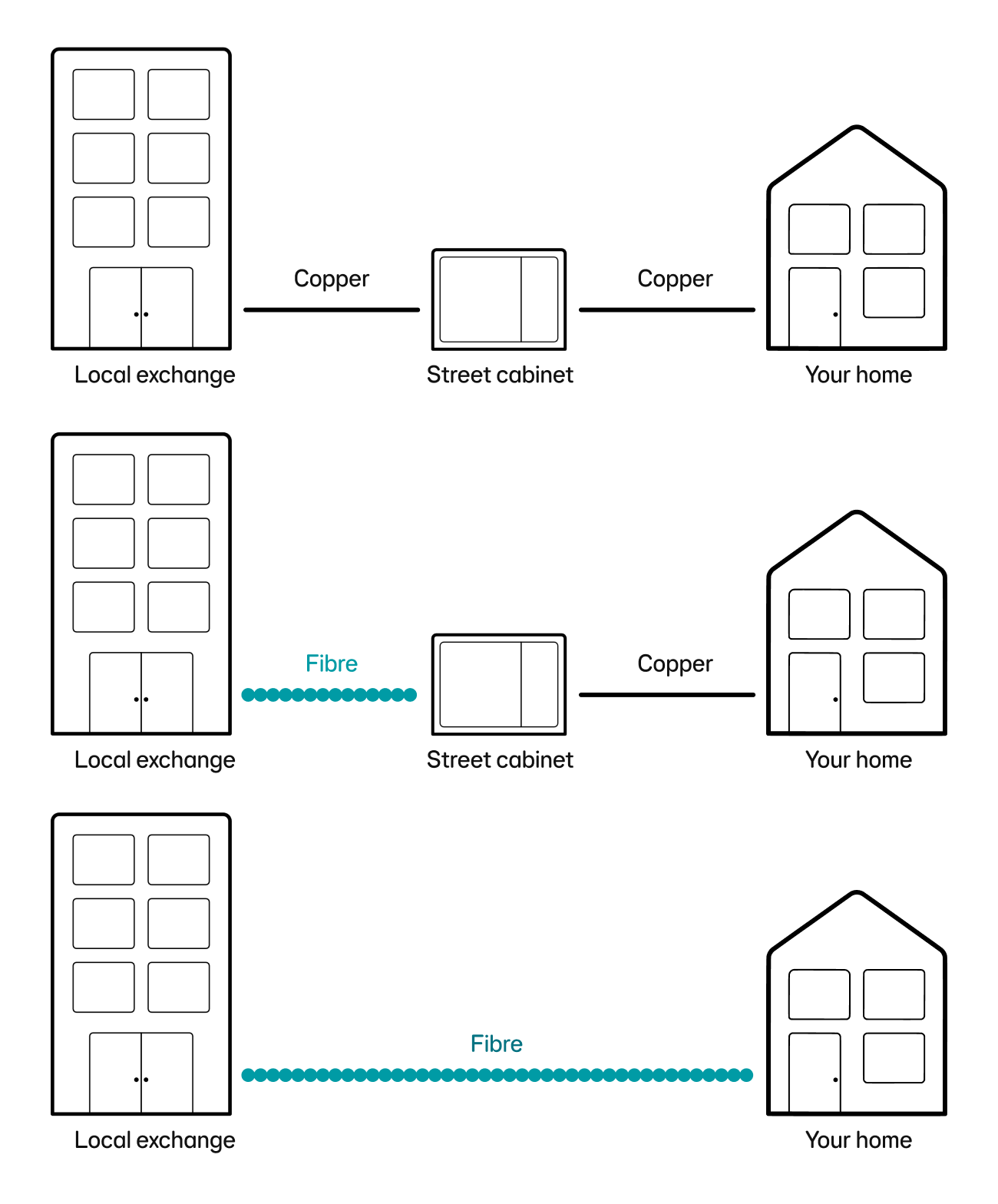Broadband update to EE services
The UK Government is aiming to upgrade fibre connections across the UK by 2025. These new fibre technologies will work without a phone line as part of the nationwide phasing out of landline telephone systems.
Changes and upgrades to your fibre technology will depend on your region. This means that customers will have different broadband connection options available depending on where abouts in the country you are. The network supplier Openreach supplies our fibre connections and is responsible for upgrades.
Types of internet connection
Full fibre
Fibre to the Premises (FTTP) is EE’s fastest and most reliable broadband, using fibre optic cables connecting directly to your home. Full fibre broadband connections work by sending signals through fibre optic cables along the entire network. New fibre technology has a larger capacity for data meaning faster connections, greater bandwidth for multiple devices. Perfect for home working, streaming and gaming.
Part fibre
Fibre to the Cabinet (FTTC) is faster than standard broadband. This is because the fibre optic cabling connects to the street cabinet and uses a combination of fibre and copper cables to connect your home. Fibre optic cables from the BT Exchange carry signals to your street cabinet, then copper cables are used to carry the signals to your home using a landline. FTTC is cheaper and more widely available than Full Fibre broadband.
Copper
Asymmetric Digital Subscriber Line (ADSL) is broadband provided by copper wires running to the exchange and then through to your home. It’s the same connection as your home phone and is usually referred to as standard broadband.
